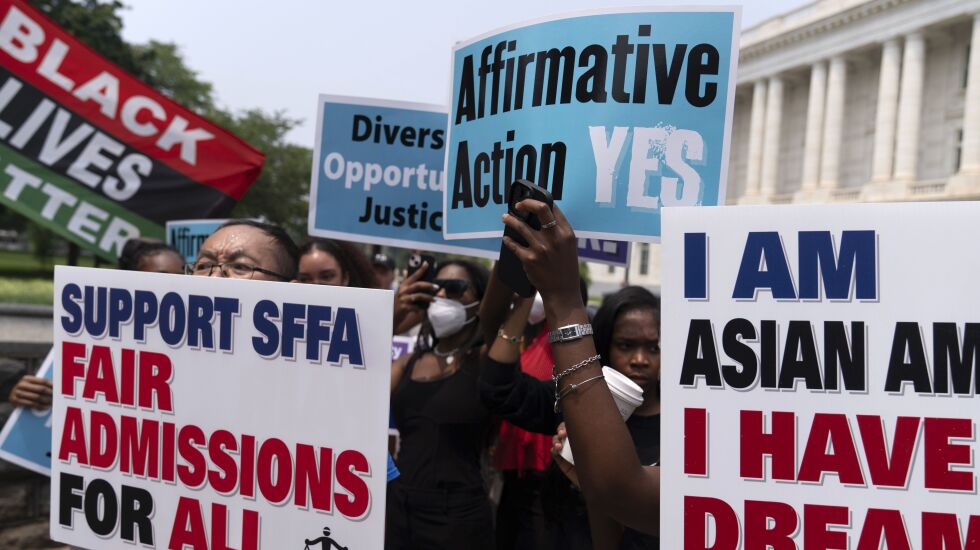
It’s been four weeks since the Supreme Court issued its ruling striking down race-conscious college admissions policies and the local fallout has already begun.
Earlier this month Western Illinois University leaders said they ended a scholarship for students of color to comply with the decision. Then, just as quickly, the school announced this week it was reinstating the scholarship.
Western is just one of many universities trying to make sense of this ruling. Their back-and-forth response speaks to the confusion it’s causing and confirms a fear by many that the decision might impact non-admissions programs, such as recruitment and retention initiatives for Black and brown students. That’s despite the fact that the justices said nothing in their ruling about scholarships or financial aid for students of color.
“On its face, that sends a kind of message that … certain students don’t belong,” said Christian Perry, policy director for the Illinois advocacy group Partnership for College Completion. “If, on the front end, I’m being told as a diversity scholar that is receiving merit because of the hardship I’ve experienced, due to racism and structural inequality in this country, … ‘Oh, sorry, nevermind,’ that could have really, really, really damaging effects.”
More than 300 Western Illinois students were notified earlier this month, just weeks before the start of classes, they would not receive a promised $1,000 scholarship for incoming students of color.
University officials did not respond to interview requests, but following questions from WBEZ about the decision, a spokesperson this week said the scholarships were being reinstated while the university awaits guidance from the U.S. Department of Education.
That move falls more in line with advice from experts. Perry and others have been urging institutions to exercise caution as they respond to the ruling.
“With the help of … legal experts and counsel, as well as nonprofit advocacy organizations like our own,” Perry said, “I think we can avoid making decisions at the college level that increase harm, because we don’t have a full grasp of the situation.”
But some institutions have been quick to act. The morning the decision was issued in late June, Missouri’s attorney general ordered state colleges to end race-conscious scholarships immediately. A Republican state legislator in Wisconsin proposed banning such financial aid.
“We’ve heard a lot of fear-mongering, which seems calculated to yield a chilling effect, to make people retreat from efforts to advance equal opportunity,” said Michaele Turnage Young, senior legal counsel for the NAACP. “Let me be crystal clear: It is not illegal to remove barriers to equal opportunity.”
The ruling — and the questions it raises — come at a particularly challenging time for Illinois. College enrollment for Black students is about one-third lower here than it was a decade ago, state data shows. And without race-conscious admissions on the table, experts say recruitment and retention initiatives for students of color will be even more important in trying to reverse this trend.
“Scholarships are a way to attract students, number one to apply and two, to enroll in an institution,” said Wil Del Pilar, senior vice president of the D.C.-based think tank The Education Trust. “And so by ending scholarships that are targeted for populations of students, you’re effectively likely to have less of those students come to your institution.”
Del Pilar says he worries because many students of color already felt a lack of belonging at predominantly white institutions before the Supreme Court’s ruling.
“This isn’t a time to back away from your commitment to equity,” he said. “If you released a statement after the affirmative action decision, then stand by that decision, and make sure that you’re supporting students of color on your campus and … pathways to enroll students of color in future generations.”







